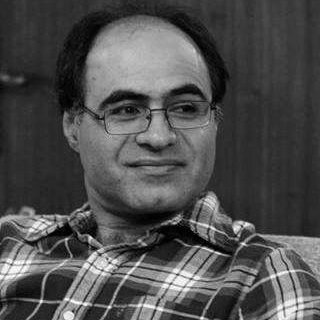
Last Update
Unknown
Organisation
Unknown
Gender
Male
Ethnic Group
Unknown
Religoius Group
Muslim
Province
Tehran
Occupation
Journalist
Sentence
Served two years in prison; Rearrested following release in December 2014.
Status
Released
Institution investigating
Unknown
Charges
Insulting Iranian officials
Insulting the Supreme Leader
Propaganda against the regime
Saeed Razavi Faghih Released
At the end of his sentence, Razavi Faghih was kept in prison, and new charges were leveled against him. He was sentenced to 3.5 years in prison for making a speech that was critical of the regime. During his latest period behind bars, he was sent to hospital to receive heart surgery and was chained to his bed and denied visitors. According to reports, he was released on Wednesday, April 6th 2016.
Journalist Saeed Razavi Faghih was first arrested on July 10th 2003, when he was on the editorial board for Yas-e Now. Saeed Mortazavi, who is known in Iran as the “butcher of the press” and at the time was newly appointed as the prosecutor-general of Tehran, ordered Faghih’s arrest and imprisonment at Evin.
Faghih’s transgression was writing articles that criticized how Hashem Aghajari, a university professor and historian, was sentenced to death. Aghajari had criticized the Islamic Republic for deviating away from the ideals of the 1979 revolution (following an international outcry, his sentence was reduced to five years in prison in 2004).
Faghih spent two months in solitary confinement, during which he lost a lot of weight. While he was in prison, he was elected by fellow journalists to the board of directors at the Iranian Association of Journalists. After he was released, he continued to engage in political and journalistic activities.
After obtaining his degree in philosophy at Modarres University in Tehran, Razavi Faghih went to France to do a PhD. During the years that he lived in Paris, he travelled back to Iran on several occasions without having any run-ins with the authorities. However, in 2011, when he landed at Tehran Khomeini International Airport, officials took his passport away; when he went to the Revolutionary Court to pursue the matter, he was arrested.
It later came to be known that he had been tried in absentia, and he had been sentenced to four years in prison on charges of activities against national security and propaganda against the regime because he had been critical of Aghajari being on death row. As he lived outside of Iran, when the verdict was issued, neither Faghih nor his lawyer Nemat Ahmadi were informed of the ruling. For this, he was detained for a short period of time.
Then, on February 27th 2013, Razavi Faghih gave a speech criticizing the actions of the regime to a group of reformists in Hamadan. The official news agency IRNA reported how he had made “comments that were against the Council of Guardians, the Assembly of Experts, parliament, and certain state leaders.”
During his speech, Faghih made references to the political unrest, which had taken place after the controversial presidential elections of 2009 and rejected official claims that the dispute between the Iranian people and the government was resolved. “If this is a closed case, why are people still out on the street demanding that protest leaders be released [from house arrest]?” he was quoted as saying. “The problem has been removed from view, but remains unresolved.”
Hardliner media outlets, such as Tasnim and Fars News Agency, which are affiliated to the Revolutionary Guards, began to target Faghih after the speech; the news outlets demanded the judiciary take action against him.
Fars reported how Razavi Faghih had become a “fugitive” when he found out about his prison sentence. However, Razavi Faghih denied this. “First of all, the normal process would have been to issue a warrant, which they have not so far done,” he said. “Secondly, how did they assume that I’m a fugitive? Why would I run away from justice? I came back to my country in 2011 when I knew about the dangers and limitations that awaited me.”
On March 6th 2014, Faghih was arrested and transferred to the notorious Rajaei Shahr Prison in Karaj, which is close to Tehran. The Revolutionary Prosecutor’s office claimed the arrest took place because of an earlier one-year prison sentence he was given for “security-based crimes.” When he appealed, the verdict was upheld.
On December 14th 2014, when his sentence was officially over, he was summoned a second time to the prosecutor’s office at Evin prison for the exact same speech. This time, new charges were levelled against him, which included conspiring to disrupt public order by participating in illegal gatherings. Consequently, he was not released from prison.
Then, on February 7th 2015, Faghih was transferred to Imam Khomeini Hospital in Tehran to receive heart surgery. According to reports, he was chained to his hospital bed during his time there and banned from having visitors. A picture of him located in the hospital confirms this.
Following a short stay in hospital, Faghih was taken back to prison despite doctors stating he was too unwell to handle the stress of prison.
Shortly after being hospitalized, 96 social and political activists issued a statement urging the Iranian judiciary to release him.